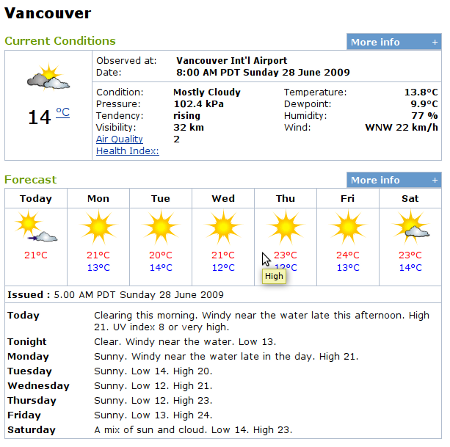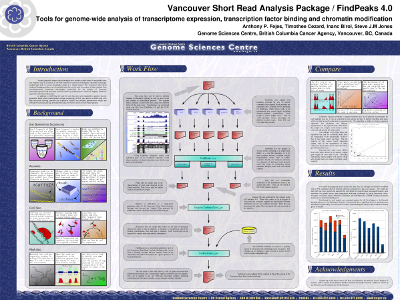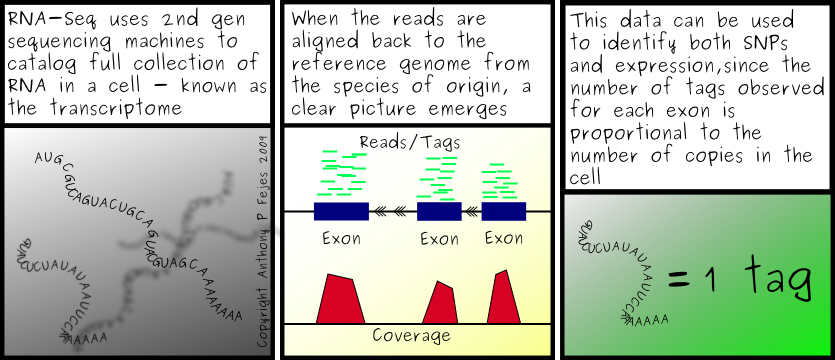An article recently appeared on scienceweb, in relation to
Daniel McArthur's blogging coverage of a conference he attended at Cold Spring Harbor, which has raised a few eyebrows (the related article is
here). Cold Spring Harbor has a relatively strict policy for journalists, but it appears that Daniel wasn't constrained by it, since he's not a "journalist", by the narrow definition of the word. More than half of the advice I've ever received on blogging science conferences comes from Daniel, and I would consider him one of the more experienced and professional of the science bloggers - which makes this whole affair just that much more interesting. If anyone is taking exception to blogging, Daniel's coverage of an event is guaranteed to be the least offensive, best researched and most professional of the blogs, and hence the least likely to be the one that causes the outcry.
As far as I can tell from the articles, Cold Spring is relatively upset about this whole affair, and is going down the path that many other institutions have chosen: Trying to suppress blogging, instead of embracing it.
Unfortunately, there really very few reasons for this to be an issue - and I thought I'd put forward a few counter-points to those who think science blogging should be restrained.
1. Public disclosure
Unless the conference organizers have explicitly asked each participant to sign a non-disclosure agreement, the conference contents are considered to be a form of public disclosure. This is relevant, not because of the potential for people to talk about it is important, but because legally, this is when the clock starts ticking if you intend to profit from your discovery. In most countries, the first time an invention is disclosed is when you begin to lose rights to an invention - broadly speaking, it often means that you have one year to officially file the patent, or the patent rights to it become void. Public disclosure can be as simple as emailing your invention in an un-encrypted file, leaving a copy of a document in a public place.... the bar for public disclosure is really quite low. More crucially, you can lose your rights to patenting things at all if they're disclosed publicly before the patent is filed.
Closer to home, you might have to worry about academic competition. If you stand up in front of a room and tell everyone what you've just discovered (before you've submitted it), any one can then replicate that experiment and scoop you... The academic world works on who has published what first - so we already have the built in instinct to keep our work quiet - until we're ready to release it. (There's another essay in that on open source science, but I'll get to it another day.) So, when academics stand up in front of an audience, it's always something that's ready to be broadcast to the world. The fact that it's then being blogged to a larger audience is generally irrelevant at that point.
2. Content quality
An argument raised by Cold Spring suggests that they are afraid that the material being blogged may not be an accurate reflection of the content of the presentation. I'm entirely prepared to call B*llsh!t on this point.
Given a journalist with a bachelors degree in general science, possibly a year or two of journalism school and maybe a couple years of experience writing articles and a graduate student with several years of experience tightly focussed on the subject of the conference, who is going to write the more accurate article?
I can't seriously believe that Cold Spring or anyone else would have a quality problem with science blogging - when it's done by scientists with an interest in the field. More on this in the conclusion.
3. Journalistic control
This one is more iffy to begin with. Presumably, the conference would like to have tighter control over the journalists who write articles in order to make sure that the content is presented in a manner befitting the institution at which the conference took place. Frankly, I have a hard time separating this from the last point: If the quality of the article is good, what right does the institution have to dictate the way it's presented by anyone who attended. If I sit down over beers with my colleagues and discuss what I saw at the conference, we'd all laugh if a conference organizer tried to censor my conversation. It's both impossible and violates a right to free speech. (Of course, if you're in russia, or china, that argument might have a completely different meaning, but in North America or Europe, this shouldn't be an issue.) The fact that I record that conversation and allow free access to it in print or otherwise should not change my right to freely convey my opinions to my colleagues.
Thus, I would argue you can either have a closed conference, or an open conference - you have to pick one or the other, and not hold different attendees to different standards depending on the mode by which they converse with their colleagues.
4. Bloggers are journalists
This is a fine line. Daniel and I have very different takes on how we interact with the blogosphere. I tend to publish notes and essays, where Daniel focusses more on news, views and well-researched topic reviews. (Sorry about the alliteration.) There is no one format for bloggers, just as there isn't one for journalists. Rather, it's a continuous spectrum of how information is distributed and for journalists to get upset about bloggers in general makes very little sense. Most bloggers work in the niches where journalists are sparse. In fact, for most people, the niches are what making blogs interesting. (I'm certainly not aware of any journalists who work on ChIP-Seq full time, and that is, I suspect the main reason why people read my feeds.)
Despite anything I might have to say on the subject, the final answer will be decided by the courts, who have been working on this particular thorny issue for years. (Try plugging "are bloggers journalists" into google, and you'll find more nuances to the issue than you might expect.
And, of course, that should be how institutions like Cold Spring Harbor have to address the issue.
Conclusion:
Treating science bloggers the way Cold Spring Harbor treats journalists doesn't make sense. Specialists talking about a field in the public is something that the community has been trying to encourage for years: greater disclosure, more open dialog and sharing of ideas are the fundamental pillars of western science. To force the bloggers into the category of the journalists in the world of print magazines is utterly ridiculous: bloggers articles can be updated to fix typos, to adjust the content and to ensure clarity. Journalists work in a world in which a typo becomes part of the permanent record and misunderstandings can remain in the public mind for decades. The power to reach a large audience exists - but only bloggers have the ability to go back and make corrections. Working with bloggers is a far better strategy than working against them.
No matter how you slice it, institutions with a vested interest in a single business model always resist change - and so do those who have not yet come to terms with the advances of technology. Unfortunately, it sounds like Cold Spring Harbor hasn't yet adapted to the internet age and are trying to fig a square peg into a round hole.
I'd like to go on the record in support of Daniel McArthur - blogging a conference is an important method of creating dialog in the science community. We can't all attend each conference, but we shouldn't all be left out of the discussion - and blogs are one important way that that can be achieved.
If Cold Spring Harbor has a problem with Daniel's blog, let them come forward and identify the problem. Sure, they can ask bloggers to announce their blog urls before the conference - allowing the organizers to follow along and be aware of the reporting, I wouldn't argue against that. It provides accountability for those blogging the conference - which serious bloggers won't object to - and it allows the bloggers to go forth and engage the community.
To strangle the communication between conference attendees and their colleagues, however, is to throttle the scientific community itself. Lets all challenge Cold Spring to do the right thing and adapt with the times, rather than to ask scientists to drop a useful tool just because it's inconvenient and doesn't fit in with the way the conference organizers currently interact with their audience.
Labels: Blog, conferences, Off topic, rant






